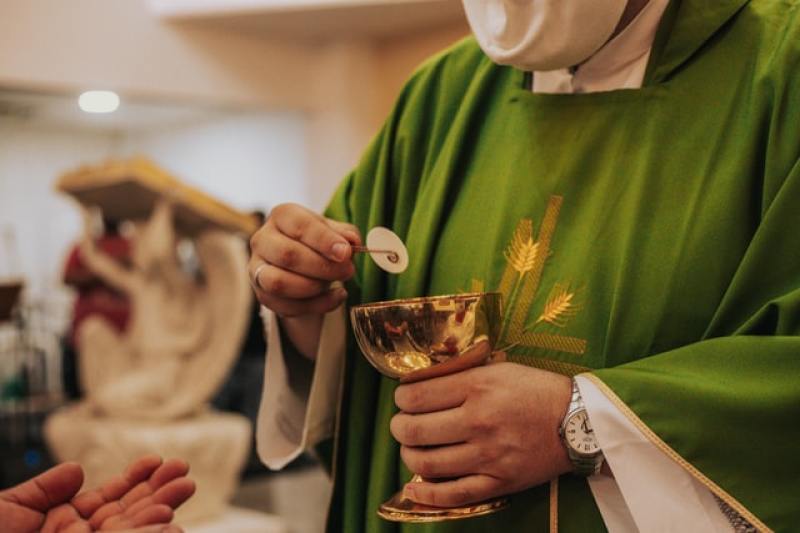
Dozens of United States bishops reportedly called for a delay on the debate whether pro-abortion politicians should receive Communion.
The Christian Post reported that 60 bishops have sent a unified letter to United States Conference of Catholic Bishops President Archbishop Jose Gomez requesting the delay discussions on Eucharistic worthiness in the scheduled June 16-18 general assembly.
The said bishops, which roughly comprise 15% of the USCCB membership of prelates of the Western Catholic Church and eparchs from the Eastern Catholic Church, were led by Archdiocese of Washington Cardinal Wilton Gregory, Archdiocese of Boston Cardinal Sean O'Malley, and Archdiocese of Chicago Cardinal Blase Cupich.
The signatories have suggested instead to "gather in person regionally or by province to discuss the Cardinal Ladaria letter before the September Administrative Committee Meeting and before any other conference or committee work continues on this matter."
"Having now received the May 7, 2021 letter from His Eminence Cardinal Luis F. Ladaria, SJ, Prefect of the Congregation for the Doctrine of the Faith, we respectfully urge that all Conference wide discussion and committee work on the topic of Eucharistic worthiness and other issues raised by the Holy See be postponed until the full body of bishops is able to meet in person," the bishops stressed in the letter.
The Pillar, who first reported on the matter after obtaining a copy of the letter sent to Gomez by the bishops this month, revealed that the final letter sent to Gomez used the letterhead of the Archdiocese of Washington. The Pillar also disclosed that sources said around 68 cardinals, bishops, bishop emeriti, and auxilliary bishops have initially signed the letter but changed their mind, which included New York Archdiocese Cardinal Timothy Dolan.
As per the contents of the letter, the group of bishops pointed out the current lack of consensus among them that Ladaria's letter have suggested for consideration before deciding on the national policy for Eucharistic worthiness for Catholic politicians consistently advocating abortion.
Ladaria responded to a March letter of Gomez on the matter just this month and pointed on the need to conduct dialogue among bishops and dialogue with the pro-choice Catholic politicians, as well as, to the letter sent by then-Prefect of the Congregation For The Doctrine of Faith Cardinal Joseph Ratzinger who is now Pope Emeritus Benedict XVI to Cardinal Theodore McCarrick and the CDF 2002 Doctrinal note for guidance on the said issue.
The Pillar said Ratzinger's letter clearly stipulated that after speaking to the politician and the politician persists then communion should be denied him. Bishops pointed out the pastoral need of doing so, which means it is more for the good of the person's soul to deny him communion than give it to him while he is unworthy to receive the Body and Blood of Christ as St. Paul pointed out in the Bible.
San Francisco Archbishop Salvatore Joseph Cardileone, who has already released a pastoral letter that denies communion to pro-choice Catholic politicians in his archdiocese, has expressed his grief in a statement last Tuesday that some of his brother bishops are attempting to delay the discussion on Eucharistic worthiness. Cardileone said that the attempted delays are contrary to regular USCCB procedures where such issues are regularly discussed and agreed upon.
"I'm deeply grieved by the rising public acrimony among bishops and the adoption of behind-closed-doors maneuvers to interfere with the accepted, normal, agreed-upon procedures of the USCCB. Those who do not want to issue a document on eucharistic coherence should be open to debating the question objectively and fairly with their brother bishops, rather than attempting to derail the process," he added.
Meanwhile, the Pillar said Gomez has recently released a memo that indicated the draft document on Eucharist worthiness would still be discussed in the June assembly following the "usual process of consultation, modification, and amendment" before it could be voted on for publication and implementation "at a future Plenary Assembly." Gomez went on to explain that the purpose of the said document is more for catechetical means than as a norm to be used among Catholics in America.






















